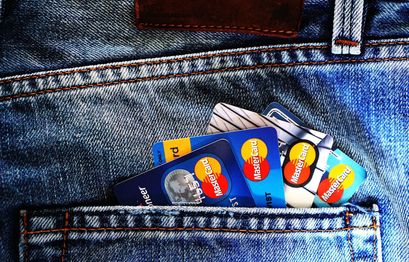Many people suffer from bad credit. It is hard to deal with it, especially if your income isn’t high enough. Repairing your finances seems like a lost cause when you are on a tight budget.
The good news is that you don’t need to pay huge amounts of money for the services of a credit repair company. You can repair it on your own. What follows are some of the things you can do to fix a bad financial record while still on a tight budget.
Fix It on Your Own
The most expensive way to fix your bad credit is by paying an agency to do it for you. You are going to spend hundreds of dollars that you could have used to repay your debts. Instead of paying someone to do the task, you should consider doing it yourself.
The first thing to do is to research how you can dispute any incorrect listings in your financial report. Disputing errors in your report would help improve your score without spending a lot of money.
Apply for a Secured Credit Card
Another way to repair your bad score is to get a secured credit card. Getting a regular one can be difficult when you have a low income or are unemployed. Banks and other financial institutions offer secured accounts, though. Unlike the traditional cards, secured accounts require a deposit that serves as your limit.
This is a good option for people with insufficient income. You can save for the deposit and open the card. This type of card is a great way to improve your score. Financial experts recommend using the card to pay for items that are already part of your budget, such as utilities and transportation costs. That way, you know you can afford to pay the amount in full every month.
Check Statute of Limitations on Old Loans
If collection agencies keep calling you for unpaid up to $5,000 bad credit loans, check for the statute of limitations in your area. If it has already passed, you don’t need to repay the debt. However, the unpaid debt will remain on your report for seven years. That’s why you should repay it since that will improve your score.
Knowing the statute of limitations on debt provides you with some space in your budget. You can plan when to repay old loans, based on your available funds, and you’ll know which debts can wait.
Reach Out to Lenders and Collection Agencies
If you are having a hard time staying on top of debt payments, consider contacting your lenders. For instance, student loan providers can offer several ways to make payments more affordable and make your account current.
Most collection agencies are willing to work out a compromise with people who default on debts. You can always negotiate for a lower payoff amount. In fact, you don’t need to wait until the creditor sells your debt to a collection agency before settling it.
If you do it correctly, creditors will settle for up to 50 per cent of the total amount owed. You should show that you are willing to bring your account back in good standing.
Missing a single payment can cause up to a 300-point deduction in your score. If you miss several payments, the lender sells your account to a collection agency. You should not avoid collectors when this happens. That’s because the less cooperative you are with the agency, the more they can make your life difficult. You should respond to their letters, emails, or calls as soon as you can. Collectors are generally more flexible if you reach out to them quickly.
Become an Authorized User on Another Person’s Account
Another way you can improve your bad rating is to become an authorized user on someone else’s account. You should find someone with a good history who is willing to assist you in your situation.
The transactions made on the card will be part of your history, which will help improve it in the end. It’s important, however, to make sure that the person is a responsible card user. If the person is late in paying his or her bills or uses more than 30 per cent of the limit, the opposite will happen. Your rating will suffer alongside the account owner.
Pay Down Your Debt
One of the best methods for repairing a bad credit rating is to pay down the debt. Thirty per cent of your score comes from the amount you owe. If you can’t afford to make minimum monthly instalments, find ways to earn more money or reduce your overhead costs.
There are many opportunities to earn money inside jobs. However, this might not be an option for some people. You might not have the time to work a second or third job while also taking care of your family. If that is the case, look for ways to reduce the monthly expenses of your household.
You can look at your budget and find areas where you can achieve some savings. It will get harder as your budget becomes leaner, however, the reward is great as your free up cash to repay your debts.
Sign Up for Free Monitoring of Credit Reports
One way to ensure that your efforts are effective is to monitor the reports from the major reporting bureaus. There are organizations that offer free monitoring of your accounts. By using their services, you will make sure that your record reflects all the efforts you made in fixing your bad rating.
Seek Professional Help
Nonprofit counsellors are also willing to help people who have a bad score. The counsellor will go through your budget and give you suggestions on how to handle the debt. The counsellor can also work with lenders to help reduce fees and interest. One might also be able to help if your debts are already in the hands of collection agencies.
Fixing bad credit takes time. Make sure you don’t fall for pitches that promise fast results, especially if it involves expensive payments for services. Filing for bankruptcy is also not an option because doing so remains in your report for up to ten years. You need to invest time and effort in order to repair your financial standing.












